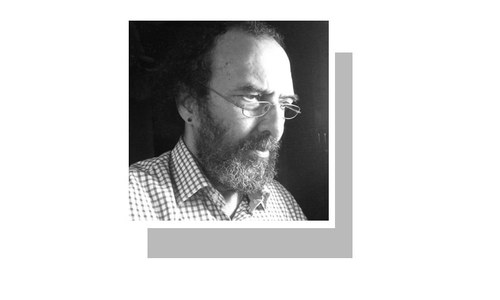US expresses ‘concern’ over Kashmir violence
UNITED NATIONS: Pakistan’s effort to stay focused on Indian atrocities in held Kashmir is resonating at the 71st session of the United Nations General Assembly in New York, as US Secretary of State John Kerry also expressed “strong concern” over recent violence in the occupied Valley.
But a stronger reaction came from the Organisation of Islamic Cooperation’s (OIC) contact group at the United Nations, which met on the sidelines of the General Assembly session and urged India to peacefully resolve the 69-year-old dispute.
“We call for an immediate cessation of Indian oppression and atrocities and urge the government of India for peaceful settlement of the dispute, in accordance with wishes of Kashmiri people and the UN Security Council resolutions,” said OIC Secretary General Iyad Ameen Madani. “The Indian occupation forces can physically blind the Kashmiri people by their pellet guns, but they cannot block their vision for the realisation of their right to self-determination.”
Secretary Kerry’s reaction was brief and also included a reference to Sunday’s militant attack in Uri.
“The prime minister and Secretary Kerry expressed strong concern with recent violence in Kashmir — particularly the army base attack — and the need for all sides to reduce tensions,” said a statement issued by his office.
OIC calls upon India to stop oppression in the Valley and to work for a settlement in line with the wishes of Kashmiris
Secretary Kerry met Prime Minister Nawaz Sharif on Monday but the State Department issued its version of the meeting on Tuesday, which significantly differed from the official statement Pakistan had issued after the meeting.
The State Department made it a point to underline the issues missing from the Pakistani statement, such as the need for nuclear restraint and preventing cross-border terrorist attacks.
“The secretary reiterated the need for Pakistan to prevent all terrorists from using Pakistani territory as safe havens, while commending recent efforts by Pakistani security forces to counter extremist violence,” said State Department spokesman John Kirby while outlining the issues discussed in the Sharif-Kerry meeting.
“They also spoke about regional issues, including recent developments with regard to Afghanistan. The prime minister and Secretary Kerry also stressed the need for restraint in nuclear weapons programmes,” he said.
However, Mr Kerry praised Pakistan for hosting Afghan refugees for over 40 years and highlighted the importance of continued respect for humanitarian principles, he added.
The two leaders also emphasised the need to continue a “strong, long-term bilateral partnership and to build upon the US-Pakistan Strategic Dialogue,” said the US statement.
The secretary praised the prime minister for restoring macroeconomic stability to Pakistan over the last three years and expressed appreciation for Pakistan’s cooperation on climate change priorities, it added.
At a briefing for Pakistani journalists, Foreign Secretary Aizaz Chaudhry and Pakistan’s permanent representative to the UN, Maleeha Lodhi, said that while Mr Sharif discussed other issues in his meetings with world leaders on the sidelines of the UN General Assembly session, he was focused on one particular issue: Kashmir.
“The prime minister has come to the UN General Assembly with only one agenda, to highlight Indian atrocities and the indigenous and peaceful nature of the Kashmiri struggle,” Mr. Chaudhry said.
Dr Lodhi said that linking Kashmir to other issues was “other people’s agenda. The PM has come with Pakistan’s agenda, which is drawing the world’s attention to the atrocities of Indian occupation forces”.
The prime minister was here “on mission Kashmir. We are focused. There will be other occasions for other issues,” she said.
Asked if the attack on the Indian military base in Uri could lead to an armed confrontation between India and Pakistan, the foreign secretary said that India was playing up the attack to hide its atrocities in the valley.
“The Indian reaction is regrettable. They blamed Pakistan even before knowing the details. India will have to think how to resolve the Kashmir dispute, blaming Pakistan will not help,” Mr Chaudhry said.
Dr Lodhi said that the uprising in the occupied valley was an “indigenous movement and nothing can stop that movement. The sooner India realises it, the better it is for all.”
She said that the ground situation in Kashmir was moving in a certain way and India could not ignore the wishes of the Kashmiri people for long.
Published in Dawn September 21st, 2016













































